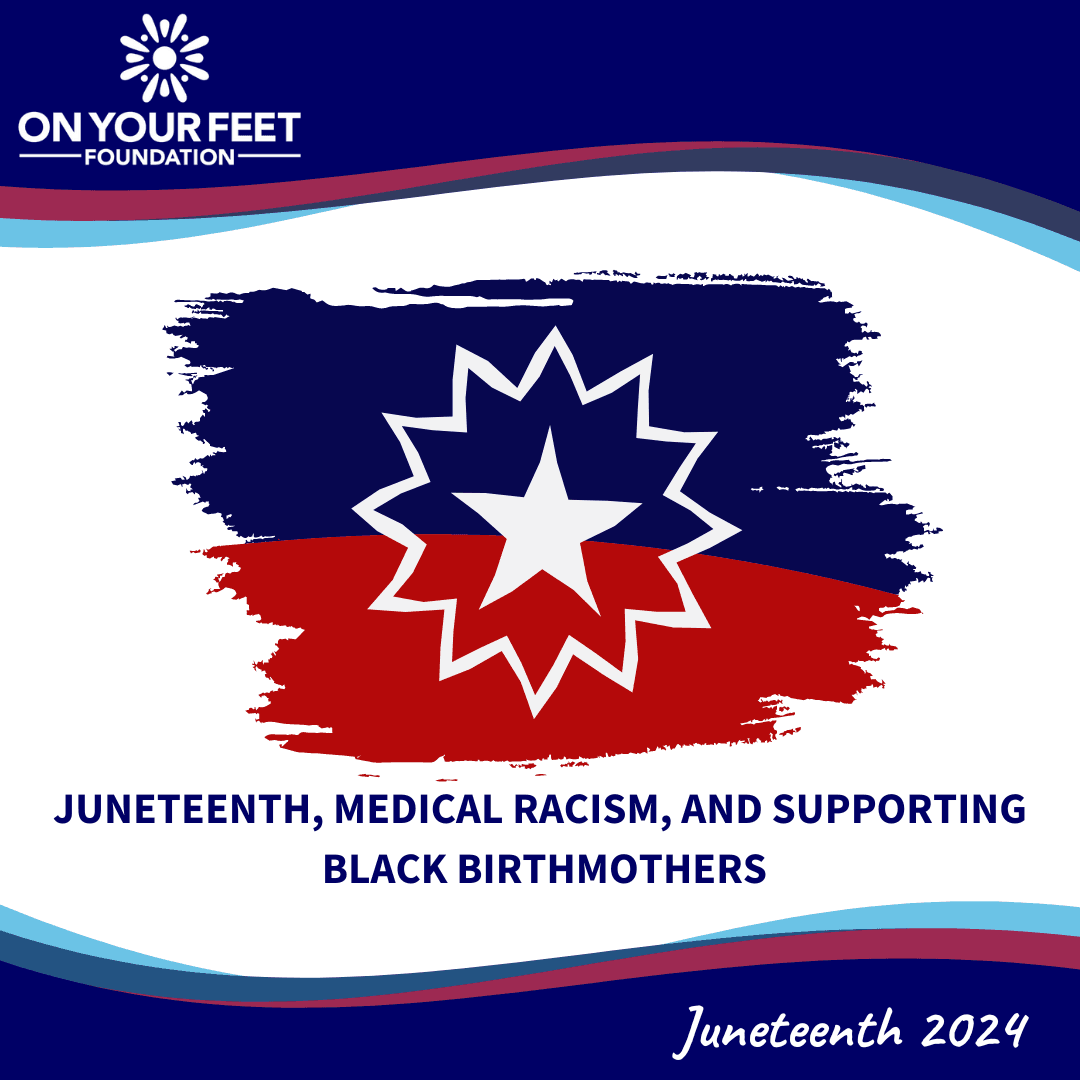
Juneteenth, celebrated annually on June 19th, commemorates the day enslaved Africans of Galveston, Texas - in the furthest reaches of the Confederacy - learned of their freedom. While many celebrate this day with cookouts, cultural events, and family traditions, the holiday also serves as a poignant reminder of the ongoing struggles for freedom, justice, and equality faced by Black Americans in the United States. Adoption social workers, agency employees, and post-placement services providers who serve women with unplanned pregnancies have a responsibility to understand the historical injustices and present-day biases within the medical system that can significantly impact Black women’s reproductive choices and maternal health.
Medical racism against Black individuals has a long history rooted in centuries of systemic discrimination and mistreatment within healthcare systems. During the era of enslavement, enslaved Africans were subjected to inhumane medical experiments and were victims of medical malpractice. Marion J. Sims, a physician from Alabama, is notorious for his experiments on enslaved Black women in the 19th century. Sims performed surgeries on enslaved women without anesthesia, using them to perfect gynecological and obstetric surgical techniques. Sims conducted hours-long surgeries on women with injuries caused by common 19th century childbirth complications, though he was not formally trained to do so. Enslavers enlisted Sims’ services to restore women to a state suitable for manual labor or childbearing, regardless of whether the women consented to his experiments. Though many of his colleagues at the time condemned his practices as unethical, Sims is largely credited as the “father of modern gynecology.”
In the United States, forced sterilization policies in the 19th century targeted various groups, including Black, Indigenous, and Latina women, and women with disabilities. Influenced by eugenics ideologies that sought to eliminate perceived "undesirable" traits from the population, forced sterilization was used to control the reproductive capacity of marginalized populations. Historically Black women have been vulnerable to coercion from healthcare providers misleading them into undergoing sterilization procedures, often as a condition for receiving other medical care or welfare services.
These experiments and policies exemplify a legacy of exploitation, dehumanization, and systemic racism that continues to impact healthcare disparities today. For instance, according to the Centers for Disease Control and Prevention, Black women have the highest maternal mortality rate in the United States, almost three times the rate of white women. Black women are also more likely to experience life-threatening conditions like preeclampsia, postpartum hemorrhage, and blood clots, as well as increased incidence of other pregnancy-related complications like preterm birth and low birth weight. Structural racism within healthcare systems contributes to these disparities, leading to inadequate care, dismissal of symptoms, and delayed interventions.
Additionally, Black parents may struggle with distrust of medical professionals or feel deterred in seeking out professional help due to historic and contemporary experiences of exploitation, bias, dismissal, and lack of cultural competency. For Black birthmothers navigating adoption decisions, these challenges underscore the critical role of advocates in ensuring they receive respectful, equitable, and culturally competent care throughout their pregnancy, childbirth, and adoption journey. Birthmother advocates who support Black mothers in hospitals and during adoption plans play a pivotal role in advocating for their rights, dignity, and well-being.
Educate: Provide adoption staff and birth parent advocates who will assist in the adoption process, birth plans, and hospital support with education around medical racism. In particular, provide training on tangible, applicable ways to intervene on a birth parents' behalf when medical racism occurs.
Ensure Informed Consent and Autonomy: Birthparents should have access to separate legal representation that can inform them of their rights throughout the adoption process. Additionally, birthparents should be made aware of their rights within healthcare settings, including the right to refuse medical procedures and access unbiased information about reproductive health options. However, it’s essential to be aware that families of color who disagree with the hospital's recommendations and voice their desire to seek alternative medical advice may be at heightened risk for being reported to CPS for alleged child neglect. Adoption professionals should be cognizant of this increased vulnerability and play an active role in advocating for parental rights and autonomy.
Provide Support: Birthparents should have access to resources that empower them to access prenatal care, mental health support, and other essential services to promote maternal health and well-being. Provide a page on your website that directs viewers to organizations that support Black families through birth and beyond - we like the National Black Doulas Association is a BIPOC Doula Directory and Training Organization, which can provide culturally competent support and services to BIPOC families, and Chicago Birth Works, who empower Black families through their entire pregnancy journey.
As we commemorate Juneteenth and reflect on its significance, adoption professionals have the opportunity to reaffirm their commitment to supporting Black birthparents and families. If you are an adoption professional serving a diverse population with varying needs, I hope you take time today to reflect on your role in dismantling systemic barriers so that Black birthparents' lived experiences, dignity, and agency are protected and supported as they navigate the adoption process.











